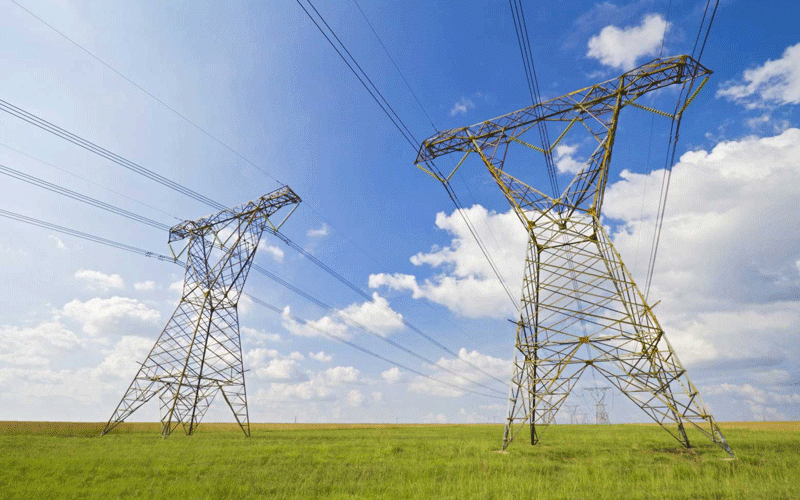
For years, Zimbabwe has grappled with a crippling energy crisis that has stunted industrial growth, disrupted daily life and deepened the country’s persistent economic malaise.
Frequent power outages, outdated infrastructure and insufficient energy production have become the norm, exacerbating the nation’s broader economic challenges. Yet, amid this bleak backdrop, a new partnership between the Mutapa Investment Fund (MIF), Indian conglomerate Jindal Africa Investments and Zimbabwe’s state-owned power utility, Zesa Holdings, offers a glimmer of hope.
The US$350 million joint venture to refurbish six units at the Hwange Thermal Power Station represents a significant step forward in addressing Zimbabwe’s energy shortfall and could have profound implications for the country’s economy, industry and international relations.
The refurbishment of these six units is expected to add approximately 400 megawatts (MW) of electricity to the national grid, a substantial boost to a power system that is insufficient to meet the country’s growing demand.
With Zimbabwe’s industries, particularly in the manufacturing sector, heavily reliant on stable electricity, this increase in capacity could have wide-reaching benefits. Manufacturing, a sector that has been severely hampered by power shortages, stands to gain the most from this development.
Currently, many factories and businesses operate below capacity due to unreliable power, often resorting to expensive diesel generators to keep their operations running. Through injecting 400MW into the grid, the refurbishment of the Hwange units could reduce the need for such costly alternatives and allow businesses to operate more efficiently, thereby improving productivity and output.
In a broader economic context, this project signals a potential turning point for Zimbabwe’s energy landscape. The country has long struggled with an energy deficit, which has in turn led to increased energy imports, further straining its already limited foreign exchange reserves.
With the refurbishment of Hwange and the recent commissioning of Units 7 and 8 by Sinohydro, Zimbabwe’s power generation capacity will increase by a combined 1 000 MW. This additional capacity could reduce the country’s reliance on imported electricity, easing the pressure on its foreign currency reserves and improving the overall balance of payments.
- Low tariffs weigh down ZETDC
- ‘Systems disturbance hits Hwange Power Station’
- Zesa doubles power charges
- Kariba, Hwange power plants obsolete: Govt
Keep Reading
The significance of this partnership extends well beyond its immediate economic impact. Jindal Africa’s involvement underscores India’s role as a key investor in Zimbabwe’s energy sector and highlights the broader potential for Indo-Zimbabwean cooperation.
India has a long history of bilateral relations with Zimbabwe, and this partnership is a testament to the trust and mutual benefit that has developed between the two nations over the years.
The recent appointment of Ambassador Brahma Kumar to Zimbabwe further cements this relationship, with his role likely to be instrumental in advancing not only energy agreements but also broader economic collaboration between the two countries. Ambassador Kumar should seize the opportunity to strengthen ties in sectors beyond energy, such as agriculture, healthcare and technology, where India can offer valuable investment and expertise.
India’s contribution to Zimbabwe’s development goes beyond financial investment. The transfer of skills and technical expertise through partnerships like the MIF-Jindal venture is crucial for Zimbabwe’s long-term growth. With many skilled workers having left the country in recent years due to economic hardships, Zimbabwe faces a significant skills gap, particularly in technical fields like engineering and energy management.
The Indian government, known for their focus on capacity building, should continue to bridge this gap by providing training and knowledge transfer to Zimbabweans. This not only benefits the immediate project but also contributes to the development of a more skilled workforce capable of supporting the country’s broader industrial and economic goals.
While the MIF-Jindal partnership is a positive development, Zimbabwe’s energy challenges are far from over. The country’s energy infrastructure remains outdated, and despite the planned upgrades, power shortages are likely to persist in the short term. Furthermore, Zimbabwe’s reliance on coal-fired power plants, such as the Hwange Thermal Power Station, raises important questions about the country’s environmental commitments.
Coal is a major contributor to greenhouse gas emissions. While it remains a necessary component of Zimbabwe’s energy mix in the immediate future, the global push towards cleaner energy sources means that Zimbabwe must begin planning for a more sustainable energy future.
Natural gas offers one such alternative. While not renewable, natural gas is a cleaner option compared to coal and could play a critical role in transitioning Zimbabwe towards a more sustainable energy system. Invictus Energy, an Australian company, has been exploring Zimbabwe’s natural gas potential, but progress has been slow due to delays in concluding the essential Petroleum Production Sharing Agreement (PPSA).
This agreement is critical to providing investors with the legal and financial assurances they need to commit further resources to gas exploration and infrastructure development. The failure to finalise the PPSA, which has been in progress for several years, is a significant stumbling block. Without this agreement, investors remain hesitant to inject the large sums of capital required to fully develop Zimbabwe’s natural gas reserves and build the infrastructure necessary for power generation.
This delay is not just a missed opportunity for energy diversification; it is also a missed economic opportunity. Natural gas could significantly reduce Zimbabwe’s reliance on coal while providing a more stable energy supply, especially during periods when renewable energy sources like solar are insufficient. Additionally, natural gas has the potential to generate significant export revenues, which would help improve Zimbabwe’s foreign exchange reserves and contribute to stabilising the economy. The government must prioritise the finalisation of the PPSA to unlock this potential and send a clear signal to investors that Zimbabwe is serious about addressing its energy challenges.
In addition to facilitating investment in natural gas, Zimbabwe must also look towards renewable energy as part of its long-term energy strategy. India, which has made significant strides in renewable energy development, could be a valuable partner in this regard. With its experience in solar, wind, and hydroelectric power, India is well-positioned to assist Zimbabwe in developing its own renewable energy capacity. Ambassador Kumar should advocate for increased Indian investment in Zimbabwe’s renewable energy sector, which would not only help address the country’s energy shortfall but also contribute to global efforts to combat climate change.
Moreover, India’s expertise in climate change mitigation could be beneficial for Zimbabwe and the broader Southern African region. As climate change continues to exacerbate extreme weather events, such as droughts and floods, the region’s energy infrastructure is increasingly at risk. India could support Zimbabwe in implementing climate-resilient energy systems, as well as sustainable land management practices that could mitigate the impacts of climate change. In expanding Indo-Zimbabwean cooperation into these areas, Ambassador Kumar can help ensure that the partnership between the two nations is not only economically beneficial but also environmentally responsible.
To this end, the MIF-Jindal partnership is a significant step forward in addressing Zimbabwe’s energy crisis and revitalizing its economy. It signals a renewed commitment to improving the country’s energy infrastructure and reducing its reliance on costly imports. However, much work remains to be done. The government must act swiftly to finalize agreements like the PPSA and attract further investment into both conventional and renewable energy sectors. India’s continued involvement, both as an investor and a development partner, will be crucial in helping Zimbabwe navigate these challenges and move towards a more secure, sustainable energy future. Through partnerships like this, Zimbabwe can begin to turn the tide on its energy crisis and set the stage for a brighter future.










